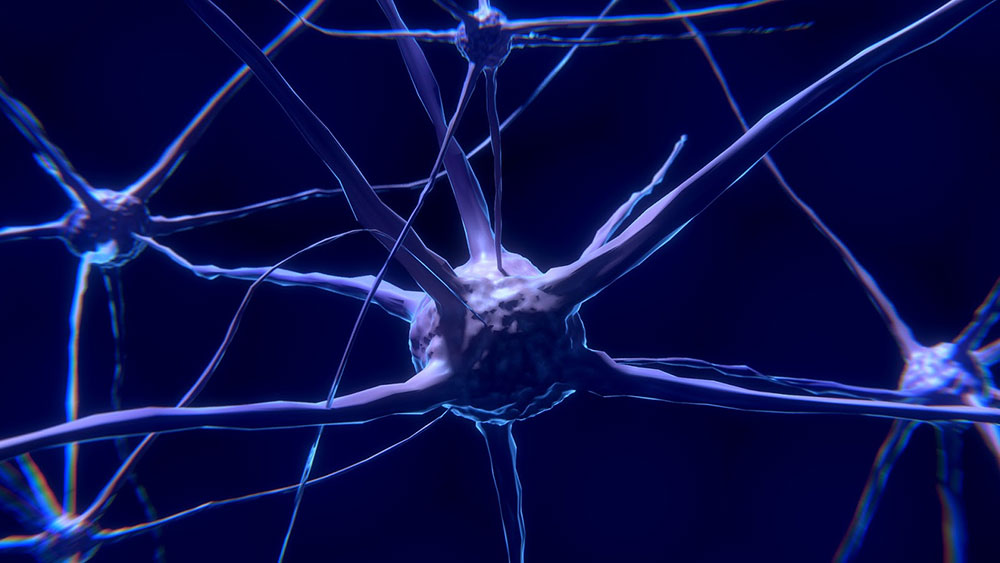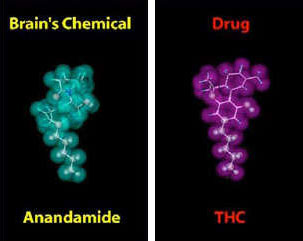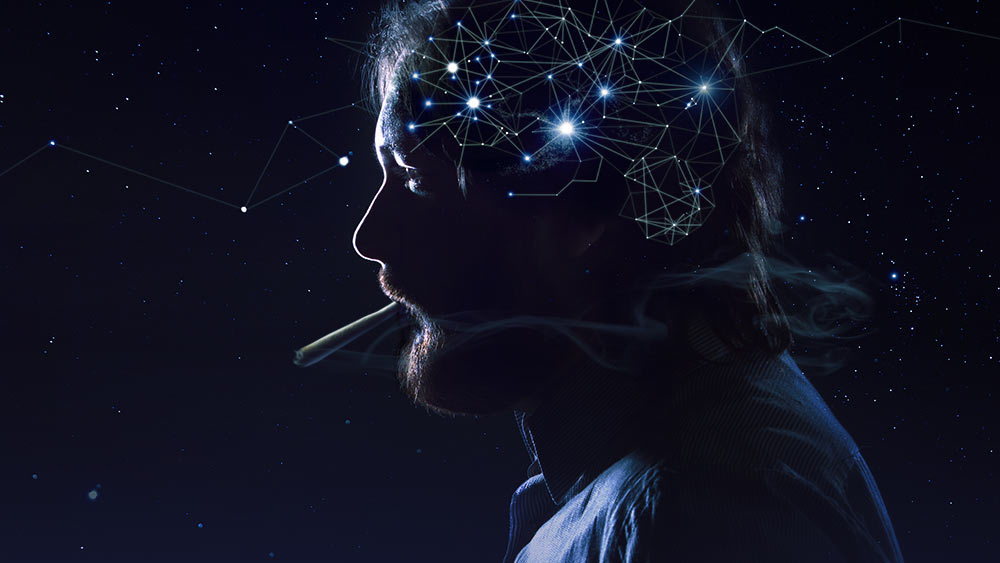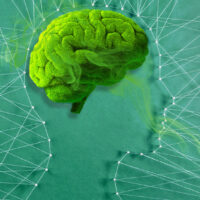Any fool can know. The point is to understand. – Albert Einstein
There’s a vast difference between knowing and understanding
In today’s world, due to the accessibility of information and the ways they’re being shared, one could easily conclude that we know more now than we ever did before.
But how much of that information do we really understand?
It was crucial to start this article with a critical approach because the fact of the matter is, we know an awful lot about marijuana nowadays, but understand very little of it. To understand something demands time and effort, while receiving knowledge can be just a passive activity.
Questioning our knowledge when it comes to marijuana and the effects it has on our brains, is of utmost importance, because understanding and knowing something with certainty is the sole condition under which changes can be made. Hopefully, changes for the better.
Therefore, prior to sharing with you the most important discoveries regarding marijuana’s effects on the brain, we urge you to keep an open mind and understand that a lot more studies need to be done on this topic before we can make any definite claims.
So, what is it that we genuinely understand?
For starters, we understand how it works

Your biology teacher probably didn’t tell you this but marijuana actually tricks our brains into responding to it.
Here’s what we mean by that.
Our brains possess a neural network that is called the endocannabinoid system. This network relies on a very particular type of neurotransmitters for communication that are called endogenous cannabinoids.
One of the most important endogenous cannabinoids is anandamide. Now, if you take a closer look at the chemical structure of anandamide and THC (the most potent and psychoactive compound found in marijuana), you’ll find an astounding resemblance.

Precisely because of this remarkable similarity, our brains are capable of detecting and responding to THC (which attaches to our cannabinoid receptors), thus allowing marijuana to affect the way we think, feel, and even move.
Endogenous cannabinoids affect the parts of the brain that are responsible for pleasure, memory, concentration, thinking, coordination, movement, as well as time and sensory perception.
The hippocampus and orbitofrontal cortex are the two parts of the brain that are most affected by THC. These two areas are responsible for the creation of new memories as well as shifting one’s attentional focus.
Moreover, THC also affects the cerebellum and basal ganglia, causing the person to experience issues with balance, coordination, posture and reaction times. That’s why it’s not advised to drive a car while being high!
Empirical evidence can’t go wrong, can it?

Scientists agree on one thing. Marijuana leaves both short-term and long-term effects on the brain.
Though we’ve briefly touched upon the most common effects caused by consumption of marijuana, here’s a list of other significant short-term side-effects that cannabis has on our brains:
- Mood swings are a fairly common side-effect of a marijuana-induced high;
- Sub-par capability for thinking and problem-solving;
- When high doses are taken, one could experience hallucinations, delusions, or even psychosis;
- Our senses can get altered, as well as our perception of time.
The sensations triggered by THC in the brain are often very pleasurable, which is why the act of using cannabis is usually repeated.
Though short-term effects tell us a lot about which parts of the brain get most affected by cannabis, long-term effects are what all the fuss is about because of their grave implications.
Here’s what we know thus far about marijuana’s long-term effects on the brain:
- Extensive and long-term marijuana use has been linked to certain mental health issues. Previously mentioned temporary hallucinations are one of them but so is temporary paranoia. The most disconcerting finding is that people with schizophrenia can get their condition exacerbated by using marijuana.
- One of the main areas of interest is how marijuana affects the brain development of teenagers. Thus far, scientists have discovered that regular use of marijuana in teenage years severely hinders the building of brain connections in areas responsible for learning, memory, and thinking. For example, a study from New Zealand showed that those who started using marijuana in their teenage years experienced a drop of 8 IQ points over the course of 25 years, unlike those who started using it in their adulthood.
- The reason why the creation of new synapses (connections between neurons) is affected by early abuse of marijuana has a lot to do with the endocannabinoid system which plays a huge role in synapse formation during formative years.
- As is usually the case, a lot of studies regarding marijuana’s effects on the brain have been done on rodents (typically rats). Some of these studies have shown that rats that have been exposed to THC before birth, right after birth, and during adolescence, developed severe memory and learning problems. The reason for this lies in the structural changes that occurred in the hippocampus’ of these rats.
- The hippocampus is the main part of the brain responsible for memory creation. As we grow old, our neurons in the hippocampus start to die out causing our capability for learning new information to decrease. This is precisely why impaired memory and learning are among the long-term effects of marijuana abuse.
After listing a few of the most prominent findings related to marijuana’s long-term effects on the brain, it’s worth knowing that not all studies have drawn the same conclusion as the previously mentioned ones.
Namely, two longitudinal twin studies haven’t shown that a significant causal relationship exists between marijuana abuse and cognitive impairment (in particular IQ loss).
In these studies, those who started abusing marijuana at an early age (preteen years), showed a major reduction in general knowledge and verbal abilities when reaching early adulthood. However, these individuals achieved lower scores on these measures prior to their marijuana abuse in comparison to those who don’t start using it in the future.
Therefore, genetics, family relationship, an unstimulating environment, and many other factors can be accountable for the mentioned decline in verbal ability and general knowledge, not only cannabis.
How serious is this?
In a nutshell, this is a very serious issue.
However, most of the studies haven’t been adequately conducted, meaning that not all confounding factors have been taken into consideration.
For example, when researching marijuana’s effects on the brain, adjusting for confounding factors such as demographic factors, other substance abuse (apart from marijuana), family anamnesis, mental health issues, etc. is very important.
When these factors are ignored, it’s hard to get a clear and genuine picture of what actually influences what, if there is a causal relationship between variables, etc.
That’s why we need a solid longitudinal study which will rely on all the state of the art technology available to us (for example, neuroimaging). Luckily, such a study is being conducted and is called the ABCD (Adolescent Brain Cognitive Development).
This largest long-term study will track a sample of 12,000 young Americans (preteens) for a full decade, in hope of deciphering the real effects marijuana and other substances have on brain development in young people.
Until then, we have to keep an open mind, watch out for new information about cannabis, and make sure we understand it.







Wesley Warren December 2, 2019 at 11:59 pm
Marijuana does NOT HINDER INTELLIGENCE.Or just people who are smarter smoke! That's just obvious!
Keith Stannard December 6, 2019 at 7:26 pm
Hi ( no pun intended), I find your article well written and somewhat rehearsed. You sound more like an advocate against. I have personally looked into this for a long period of time and read many many articles pertaining with marijuana. I will agree with you that high usage will cause issues as with food or anything one abuses, and by that I mean excessively. Marijuana has been used medically and spiritually since humans first learned of its existence. These days it is used by people to treat a number of things including epilepsy and fibromyalgia and parkinsons and some forms of cancer. Despite not seeing any of this in your article or even how big pharmaceutical companies know about the positivety of the plant but denied its usefulness to make themselves rich and feed us more harmful drugs. Heck, nicotine, caffeine, morphine, amphetamine, alcohol do far more damage. Like the above they don't provide good outcomes for all but do for most. The world for the most part is catching on to this and unwilling to be dictated to by those looking to make a name or abuse their station or anything other reason. All I am saying is please don't write one sided articles when clearly there is more and science is proving that where allowed.
Kevin January 23, 2020 at 11:59 am
That's true, actually the article should be named disadvantages of marijuana, yet there is a lot of good shit about it. @Keith stannard
Tim G. December 9, 2019 at 9:50 pm
Great presentations of facts. People will get defensive but obviously smoking weed or getting intoxicated can't be good for you in the long run. That's my opinion and I continue to consume it so knowing better doesn't mean you'll do better. Thank you!